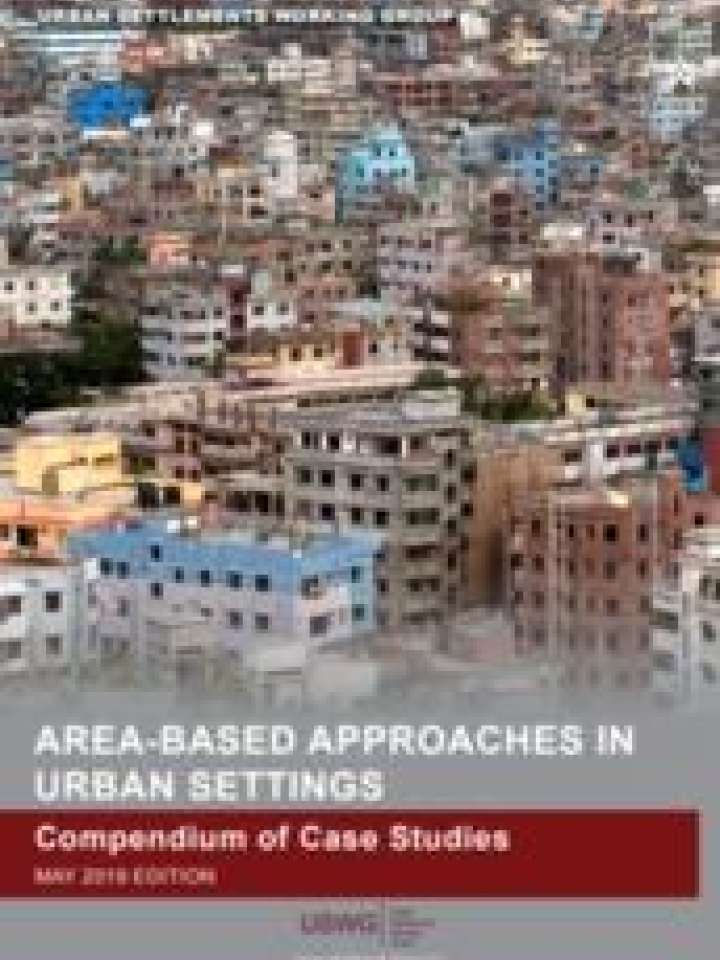Area-based approaches in urban settings: Compendium of case studies
This compendium is a pioneering collection of case studies describing area-based approaches to urban challenges (2010-2019). Sourced from multiple agencies, the case studies documented here are in response to both humanitarian crises and developmental challenges and from a mix of contexts such as rapid onset natural disasters, conflict-induced crises and the effects of rapid urbanisation. The case studies are organised in three sections according to the administrative scale of the project/initiative — from City level scale (C) to District/Borough scale (D) and to Neighbourhood/Ward level (N). Case studies related to disasters explore topics such as flood resilience, risk reduction in vulnerable urban settlements and typhoon recovery, among others.
The term ‘area-based approaches’ is used to include a wide-range of approaches described in policy, practice and academia as ‘area-based’, ‘settlement-based’ or ‘neighbourhood-based.’ For this compendium project, characteristics of area-based approaches include: multi-sectoral, multi-stakeholder, geographically targeted and consider the whole population within an area's location. Whilst the focus of the compendium is area-based approaches undertaken in urban areas, area-based approaches remain equally applicable in peri-urban and rural areas with high levels of complex, inter-related and multi-sectoral needs.
Explore further
